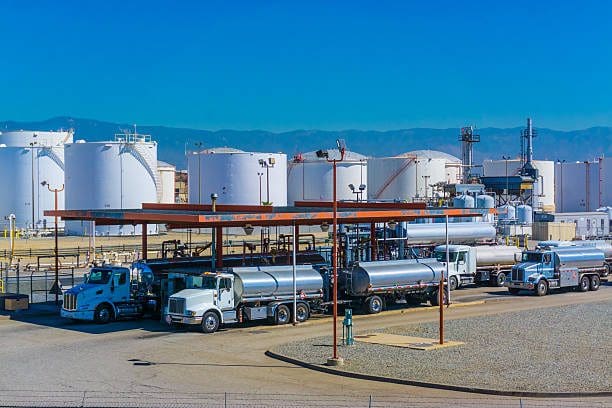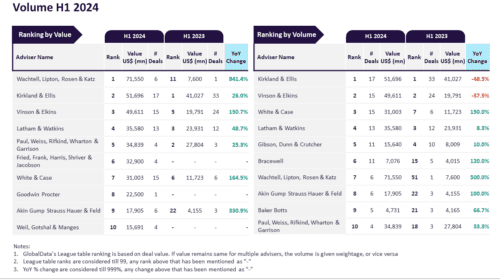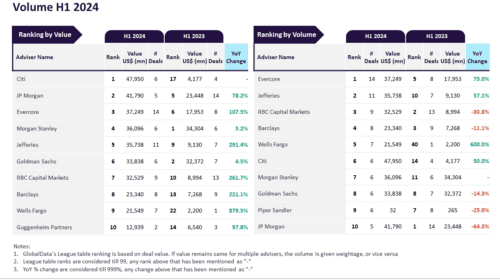The oil and gas sector is enormous and has a complex infrastructure. Several divisions are coordinating their efforts to ensure the smooth operation of the factory. For the petroleum industry to thrive, transportation is crucial.
Industrial fleets make several daily journeys to meet the need for supplies. Fleet management software aids in the difficult chore of tracking their whereabouts.
Understanding the Role of Fleet Management in the Petroleum Industry
Risks abound in transporting petroleum products because of their potential danger. Managers of transportation fleets must always keep an eye out for potential hazards and make sure everything moves along smoothly. To facilitate their work, they employ cutting-edge monitoring tools. Because fleet management is crucial to the smooth running of an oil and gas company’s day-to-day operations, it is a prime area for investment.
In the oil and gas business, your fleet is more than just a means to move goods and people from one place to another. For some companies, fleet cars generate as much as 80% of their earnings from field and gas activities.
Precisely What Does Fleet Management Software Entail?
Managing the petroleum’s day-to-day operations and making the most of its available resources is made more accessible with fleet management software. It’s a one-stop shop where expert insights and timely advice are available. Using the information it gathers, an excellent digital fleet management application may help save money and streamline operations, bringing together the advantages of fleet management and software.
When digital technologies are carefully choreographed before installation, the resulting fleet management platform is intuitive and easy to understand and use. Here are more reasons oil and gas companies using fleet management software benefit the operations it caters to.
1. The Management of Oil and Gas Industry Fleets Focused on Safety
Oil and gas fleet management prioritizes effectiveness and conformity with rules and regulations. Few others are subject to as much health, security, and environmental regulation scrutiny. The emergence of vehicle technology presents an opportunity for oil and gas fleet managers and other professionals in the energy business to enhance operational efficiencies while guaranteeing conformity with stringent regulatory requirements.
Instant Evaluation and Response Fleet Management Software-Induced
From the icy fields of Alaska to the blistering deserts of Texas, fleet managers in the oil field may now assess and regulate fleet driver behavior and anticipate fleet repair needs.
Fleet managers can keep tabs on their deliveries in real-time and redirect them if necessary with the help of GPS vehicle tracking software. An accurate understanding of what’s going on in the field can be attained by a comprehensive picture of truck locations, their progress on their tasks, and their estimated arrival and delivery times.
Maintaining a Safe Driving Environment with Real-Time Data and Analysis
It is imperative that fleet managers put the health and safety of their drivers first. According to the SafetyNet Final Activity Report, about 30% of all fatal crashes can be attributed to excessive speed. Because of this, monitoring and reporting on drivers’ productivity and behavior are typically prioritized in a fleet management system.
2. Oil and Gas Fleets Driven by Telematics Data Lessen Fuel Cost and Maximize the Refund Gas Tax
Since oil and gas fleets directly impact a business’ bottom line, they require careful tracking to guarantee the most efficient use of resources. Telematics has advanced past the stage of merely tracking locations due to the robust data collection capabilities it now possesses. It simplifies and improves fleet management, allowing oil and gas firms to get the most out of their vehicles.
Decision-Making in Fleet Management Can Reduce Fuel Use
Oil and gas firms worrying about gasoline prices may seem odd, but ignoring this cost would be a wrong business move. Diesel fuel is the single most significant expense for commercial trucking fleets, as reported by The Truckers Report. Diesel for just one commercial truck can cost upwards of $70,000 annually. Even while oil and gas firms bear the cost of gasoline for other industries’ commercial vehicles, they are still subject to those costs themselves.
How Can Fleet Management Solutions Help in Fuel Problems?
As a result, one of the best ways for a fleet to boost profits is to address fuel-wasting driver habits. As an example, it has been found that long-haul vehicles lose about 1,500 gallons of diesel per year due to idling. When telematics detects excessive idling, it notifies fleet managers instantly.
Tax Refund Maximizing Brought by Fleet Management Software
Fuel tax claims can be strengthened using telematics, yet another way oil and gas firms can save money. Because oil and gas fleets spend so much time on private roads, they should be entitled to a fuel tax rebate. There’s also the fuel cost for vehicles and other vehicles utilized at well sites. Unfortunately, gathering the necessary documentation to be eligible for these tax breaks can be difficult and time-consuming.
3. Regular Maintenance Management Helps Cut Down on “Wear and Tear”
Managers face a significant challenge regarding the upkeep of their fleet. It is time-consuming and labor-intensive, but it is crucial to the long-term viability of vehicles. Managers can better keep track of their vehicles’ maintenance schedules thanks to fleet management software. They can plan out maintenance for each car down to minor details. Every activity can be given a due date, allowing for more precise planning.
Manage Everything from One Centralized Hub
Managers can also use the car tracking software’s alert notifications to set themselves gentle reminders. As a result, they can complete all of the necessary maintenance work on schedule. Maintaining the cars in top shape like this helps maximize productivity.
Having all the data you need to make a call in one place helps fleet managers make better, more timely, optimized, and rational decisions.
Conclusion: The Future of Oil and Gas Vehicle Management Lies in Fleet Management Software
Undoubtedly, the oil and gas sector relies heavily on a reliable transportation system. The use of fleet management software can improve workflow and productivity. The petroleum sector needs these solutions to progress, and progress keeps the company driving toward the future.
Oil and gas operations are commonly found in remote locations far from company headquarters. Now, it's possible to monitor pump operations, collate and analyze seismic data, and track employees around the world from almost anywhere. Whether employees are in the office or in the field, the internet and related applications enable a greater multidirectional flow of information – and control – than ever before.











